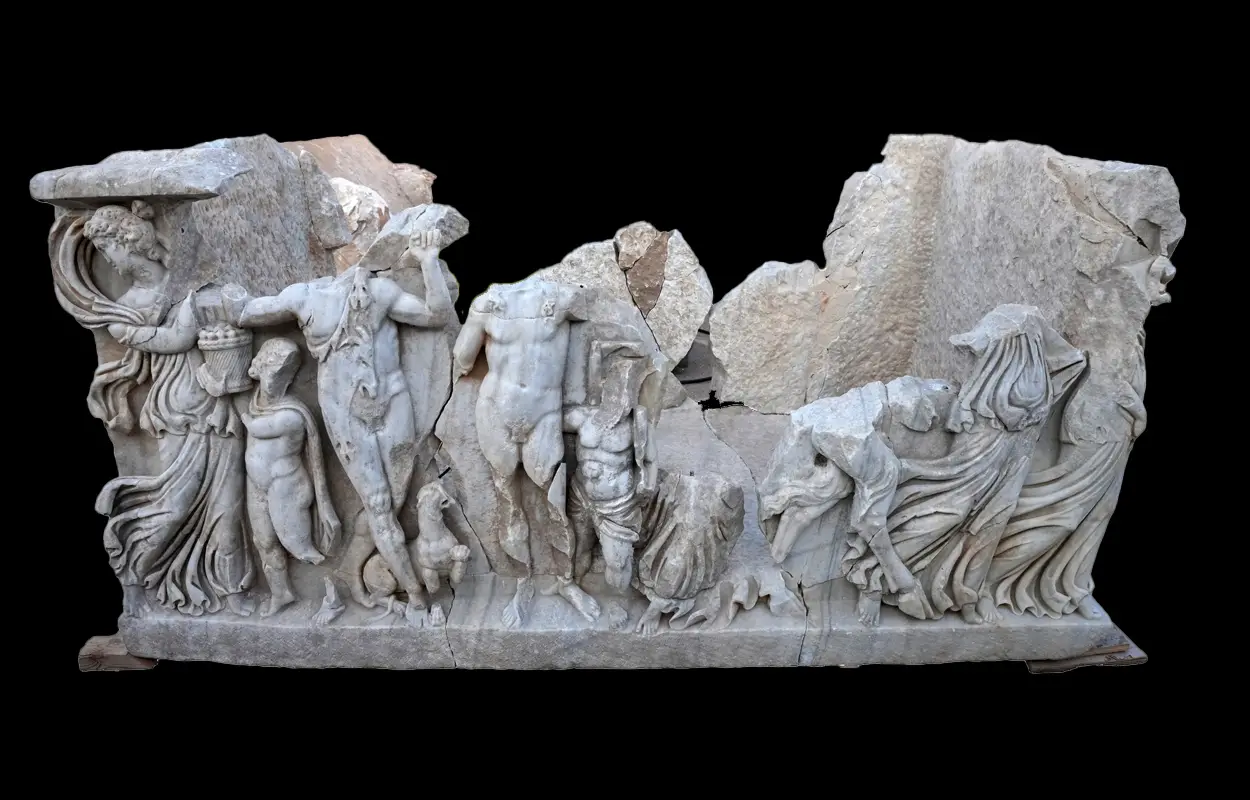Archaeologists from the Israel Antiquities Authority (IAA), working on behalf of the Caesarea Development Corporation, have unearthed an exquisitely sculptured marble sarcophagus near the coastal city of Caesarea, Israel.
According to experts, the sarcophagus dates from the Roman period and features a rare depiction of a drinking contest between Dionysus (or Bacchus), the god of wine, and Heracles (Hercules), the mythological hero.
While this drinking contest was a common motif in Roman art and mosaics, its appearance on a Roman sarcophagus is a first for the region. Such depictions were said to represent the power of wine, and that even a powerful hero like Hercules could be outdone by the gods.
The discovery was made in the sand dunes outside of Caesarea, indicating that the city extent was much larger than previously thought during the Roman period. At the time, Roman Cesaria replaced Jerusalem as its civilian and military capital and became the official residence of its governors.

Shani Amit from the IAA, said: “We began removing the soft, light sand of the dune, when suddenly the tip of a marble object popped up. The entire excavation team stood around excitedly, and as we cleared more sand, we couldn’t believe what we were seeing – parts of a sarcophagus, upon which figures were carved: gods, animals, and trees.”
The sarcophagus was sent to the IAA’s conservation team, revealing an elaborate central scene of Dionysus surrounded by a retinue of mythological figures, including Maenads (female followers of Dionysus), satyrs, Hermes, Pan, lions, and tigers.
Eli Escusido, Director of the Israel Antiquities Authority, remarked: “This discovery offers fascinating insights into Roman perceptions of life, death, and faith. The sarcophagus is now undergoing detailed conservation and, once completed, will be displayed for the public, as part of our ongoing effort to make Israel’s heritage accessible to all.”
Header Image Credit : IAA
Sources : Israel Antiquities Authority





